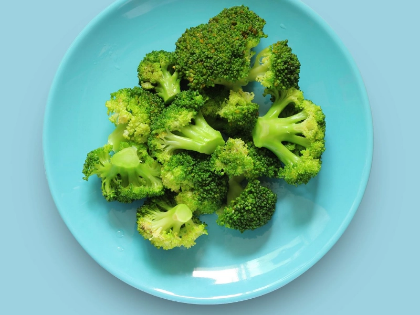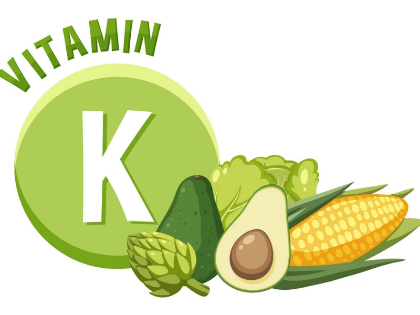The Role of Nuts in a Balanced Vegetarian Diet
Advertisement
1. Knowing a Balanced Vegetarian Diet

Advertisement
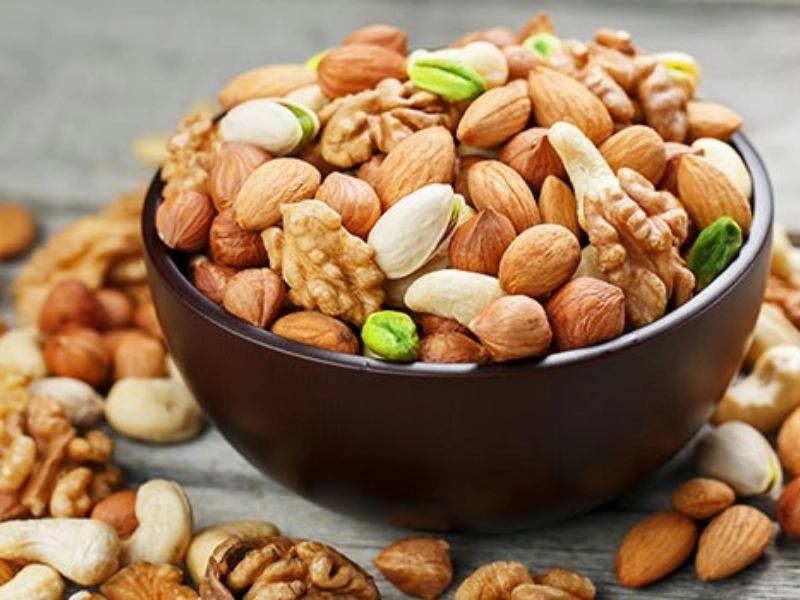 Nutrient-dense foods, nuts abound in important vitamins, minerals, good fats, and protein. Common kinds have different health advantages but include almonds, walnuts, cashews, pistachios, and hazelnuts. Excellent sources of both monounsaturated and polyunsaturated fats—which are good for heart health—nuts are Important minerals, including vitamin E, magnesium, potassium, and antioxidants, abound there as well. While adding taste and variation, using nuts in a vegetarian diet helps meet daily nutritional needs.
3. Heart Health and Good Fats
Nutrient-dense foods, nuts abound in important vitamins, minerals, good fats, and protein. Common kinds have different health advantages but include almonds, walnuts, cashews, pistachios, and hazelnuts. Excellent sources of both monounsaturated and polyunsaturated fats—which are good for heart health—nuts are Important minerals, including vitamin E, magnesium, potassium, and antioxidants, abound there as well. While adding taste and variation, using nuts in a vegetarian diet helps meet daily nutritional needs.
3. Heart Health and Good Fats
 The good fat content of nuts makes them among the most important additions to a vegetarian diet. Mostly unsaturated, the fats in nuts help lower bad cholesterol and lower the risk of heart disease by nature. Studies have indicated that consistent nut intake is linked to better cardiovascular condition. Including a few nuts in daily meals will help heart function and supply necessary energy.
4. Powerhouses of Proteomics
The good fat content of nuts makes them among the most important additions to a vegetarian diet. Mostly unsaturated, the fats in nuts help lower bad cholesterol and lower the risk of heart disease by nature. Studies have indicated that consistent nut intake is linked to better cardiovascular condition. Including a few nuts in daily meals will help heart function and supply necessary energy.
4. Powerhouses of Proteomics
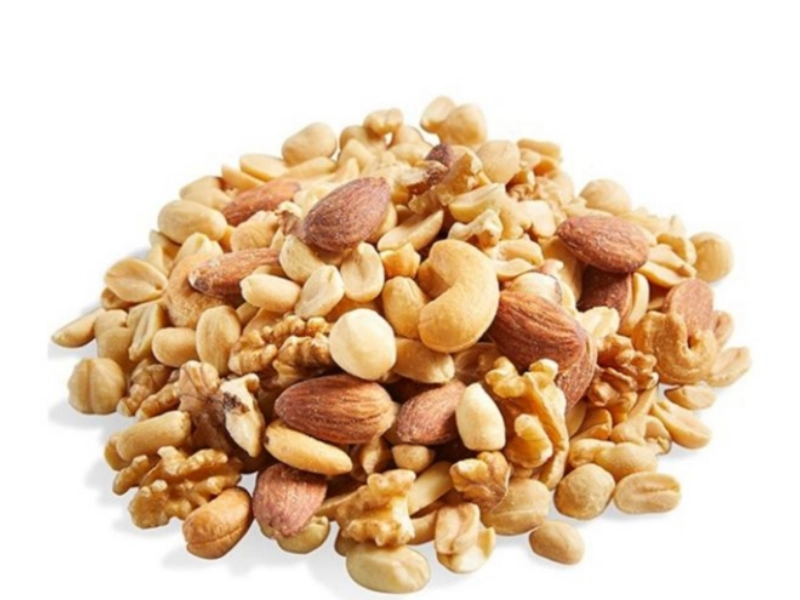 Though a vegetarian diet can supply enough protein from legumes, grains, and dairy products, nuts are a great extra source. For people who might find it difficult to satisfy their protein demands, they are a great addition because of their modest protein content. For instance, although peanuts provide roughly 7 grams of protein, almonds have about 6 grams per ounce. Combining nuts with other protein sources can help produce well-balanced meals supporting general health and muscle maintenance.
5. Fiber for Gastronomic Comfort
Though a vegetarian diet can supply enough protein from legumes, grains, and dairy products, nuts are a great extra source. For people who might find it difficult to satisfy their protein demands, they are a great addition because of their modest protein content. For instance, although peanuts provide roughly 7 grams of protein, almonds have about 6 grams per ounce. Combining nuts with other protein sources can help produce well-balanced meals supporting general health and muscle maintenance.
5. Fiber for Gastronomic Comfort
 Additionally high in dietary fiber, nuts are absolutely vital for digestive wellness. Fiber enhances a good gut flora, helps control bowel movements, and helps avoid constipation. A diet heavy in fiber has been linked to a reduced risk of chronic diseases, including heart disease and diabetes. Including nuts in a vegetarian diet can increase fiber intake, promoting digestive health and bettering nutritional absorption generally.
6. Anti-Inflammatory Effect and Antioxidants
Additionally high in dietary fiber, nuts are absolutely vital for digestive wellness. Fiber enhances a good gut flora, helps control bowel movements, and helps avoid constipation. A diet heavy in fiber has been linked to a reduced risk of chronic diseases, including heart disease and diabetes. Including nuts in a vegetarian diet can increase fiber intake, promoting digestive health and bettering nutritional absorption generally.
6. Anti-Inflammatory Effect and Antioxidants
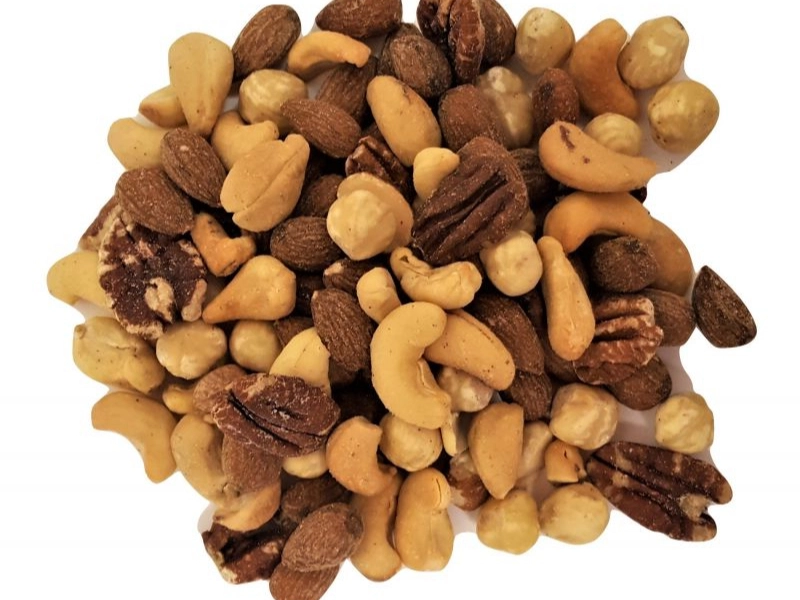 Excellent providers of antioxidants, many nuts help guard the body from oxidative stress and inflammation. Particularly high in polyphenols and omega-3 fatty acids—both renowned for their anti-inflammatory effects—are walnuts. Consistent nut intake can help fight inflammation, lower the risk of chronic diseases, and boost general health. Vegetarians especially benefit from this since sometimes plant-based diets lack enough anti-inflammatory elements.
7. Adaptable Cooking Ingredients
Excellent providers of antioxidants, many nuts help guard the body from oxidative stress and inflammation. Particularly high in polyphenols and omega-3 fatty acids—both renowned for their anti-inflammatory effects—are walnuts. Consistent nut intake can help fight inflammation, lower the risk of chronic diseases, and boost general health. Vegetarians especially benefit from this since sometimes plant-based diets lack enough anti-inflammatory elements.
7. Adaptable Cooking Ingredients
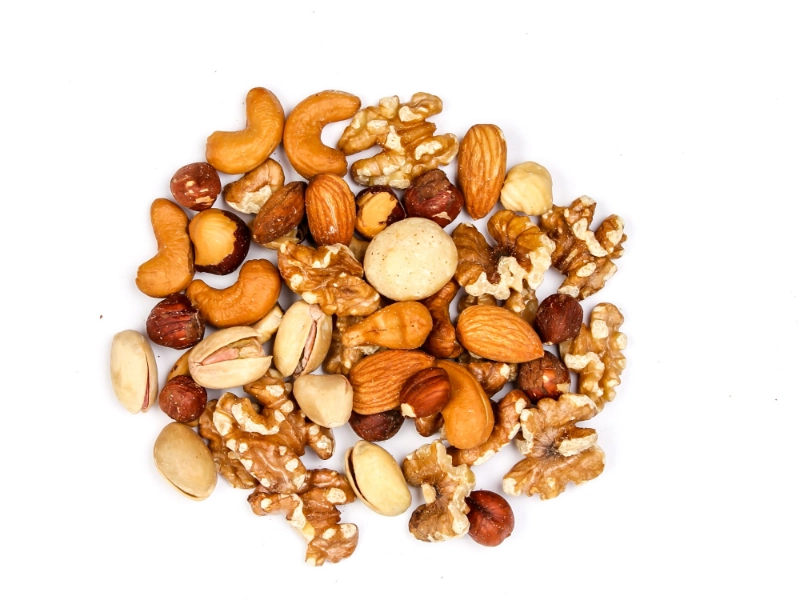 Nuts are rather flexible and fit for many kinds of cuisine. Raw, roasted, or as nut butters, they provide food's texture and taste. On salads, nuts can be scattered; they can also be mixed into smoothies or topped with yogurt and porridge. They can also be crushed into flour for baking or utilized to make dairy-free sauces. Because of their adaptability, nuts fit well in regular meals and improve taste and nutrition.
8. Moderation and Section Control
Nuts are rather flexible and fit for many kinds of cuisine. Raw, roasted, or as nut butters, they provide food's texture and taste. On salads, nuts can be scattered; they can also be mixed into smoothies or topped with yogurt and porridge. They can also be crushed into flour for baking or utilized to make dairy-free sauces. Because of their adaptability, nuts fit well in regular meals and improve taste and nutrition.
8. Moderation and Section Control
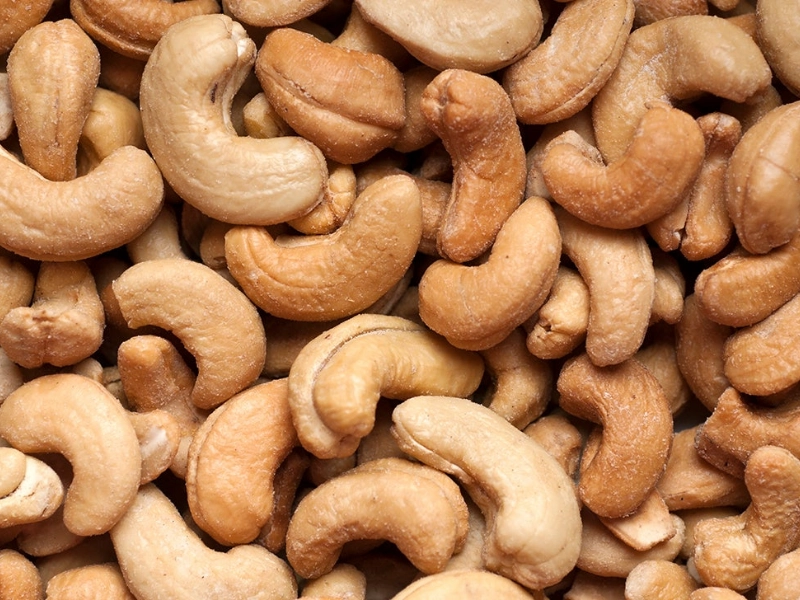 Though they are quite nutritious, nuts have a lot of calories. To prevent too high calorie intake, one should learn good portion management. Usually one ounce, or a little handful, a serving size offers a good mix of nutrients without packing too many calories. While keeping a balanced diet, knowing portion quantities helps maximize the health advantages of nuts.
9. Respecting Alternatives and Allergies
Though they are quite nutritious, nuts have a lot of calories. To prevent too high calorie intake, one should learn good portion management. Usually one ounce, or a little handful, a serving size offers a good mix of nutrients without packing too many calories. While keeping a balanced diet, knowing portion quantities helps maximize the health advantages of nuts.
9. Respecting Alternatives and Allergies
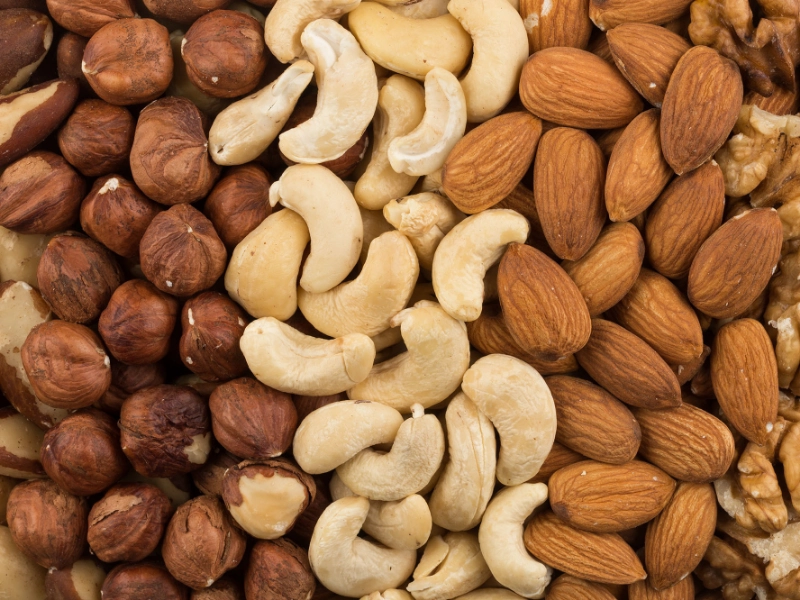 Those with nut allergies must locate other sources of good proteins and lipids. Without running the danger of allergic reactions, seeds—including chia seeds, pumpkin seeds, and sunflower seeds—can offer similar nutritious value. Furthermore, filling the nutritional void left by removing nuts from the diet are whole grains and legumes. Investigating several food choices guarantees that every vegetarian can have a balanced diet catered to their requirements.
10. Synopsis of Nutritional Value for a Vegetarian Diet
Those with nut allergies must locate other sources of good proteins and lipids. Without running the danger of allergic reactions, seeds—including chia seeds, pumpkin seeds, and sunflower seeds—can offer similar nutritious value. Furthermore, filling the nutritional void left by removing nuts from the diet are whole grains and legumes. Investigating several food choices guarantees that every vegetarian can have a balanced diet catered to their requirements.
10. Synopsis of Nutritional Value for a Vegetarian Diet
 A balanced vegetarian diet must include nuts since they provide a great supply of antioxidants, protein, fiber, and good fats. Their nutritional value supports general well-being, intestinal health, and cardiac function. Vegetarians can improve their nutrition by including a range of nuts in everyday meals and yet enjoy great and adaptable cuisine. Emphasizing portion management and thinking through alternatives for individuals with allergies guarantees that everyone can profit from this nutrient-dense food group.
A balanced vegetarian diet must include nuts since they provide a great supply of antioxidants, protein, fiber, and good fats. Their nutritional value supports general well-being, intestinal health, and cardiac function. Vegetarians can improve their nutrition by including a range of nuts in everyday meals and yet enjoy great and adaptable cuisine. Emphasizing portion management and thinking through alternatives for individuals with allergies guarantees that everyone can profit from this nutrient-dense food group.
Advertisement
Advertisement


